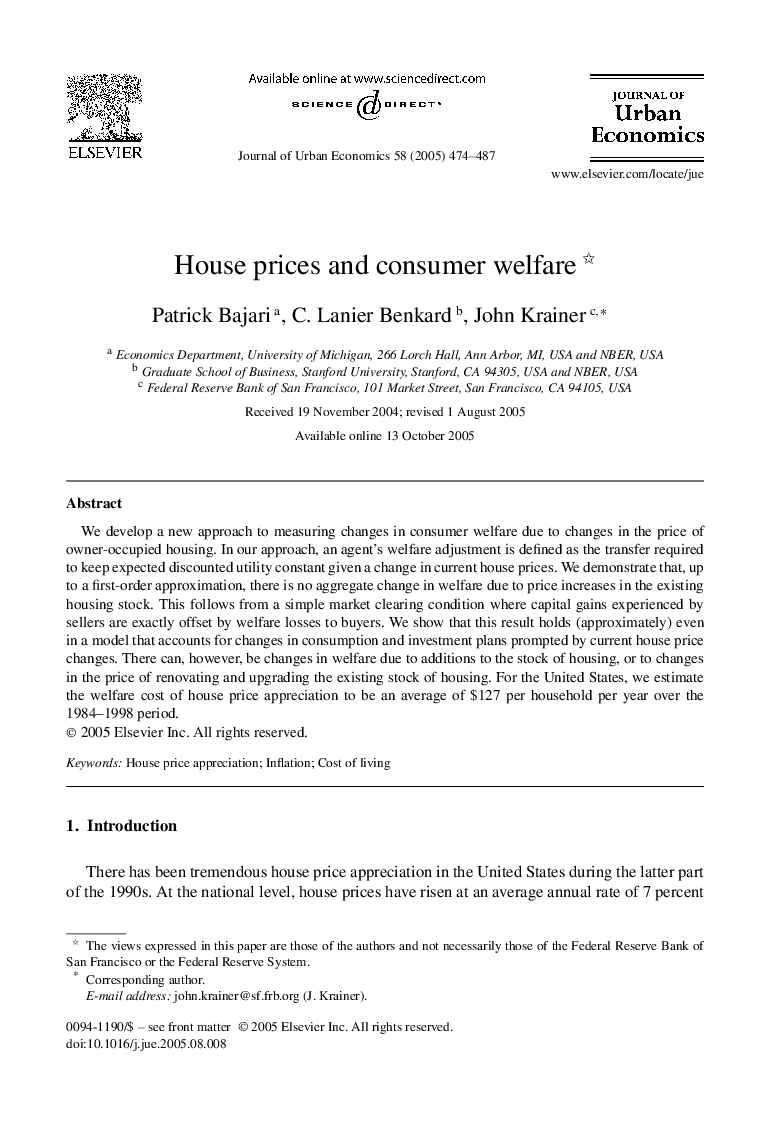| Article ID | Journal | Published Year | Pages | File Type |
|---|---|---|---|---|
| 10480012 | Journal of Urban Economics | 2005 | 14 Pages |
Abstract
We develop a new approach to measuring changes in consumer welfare due to changes in the price of owner-occupied housing. In our approach, an agent's welfare adjustment is defined as the transfer required to keep expected discounted utility constant given a change in current house prices. We demonstrate that, up to a first-order approximation, there is no aggregate change in welfare due to price increases in the existing housing stock. This follows from a simple market clearing condition where capital gains experienced by sellers are exactly offset by welfare losses to buyers. We show that this result holds (approximately) even in a model that accounts for changes in consumption and investment plans prompted by current house price changes. There can, however, be changes in welfare due to additions to the stock of housing, or to changes in the price of renovating and upgrading the existing stock of housing. For the United States, we estimate the welfare cost of house price appreciation to be an average of $127 per household per year over the 1984-1998 period.
Keywords
Related Topics
Social Sciences and Humanities
Economics, Econometrics and Finance
Economics and Econometrics
Authors
Patrick Bajari, C. Lanier Benkard, John Krainer,
